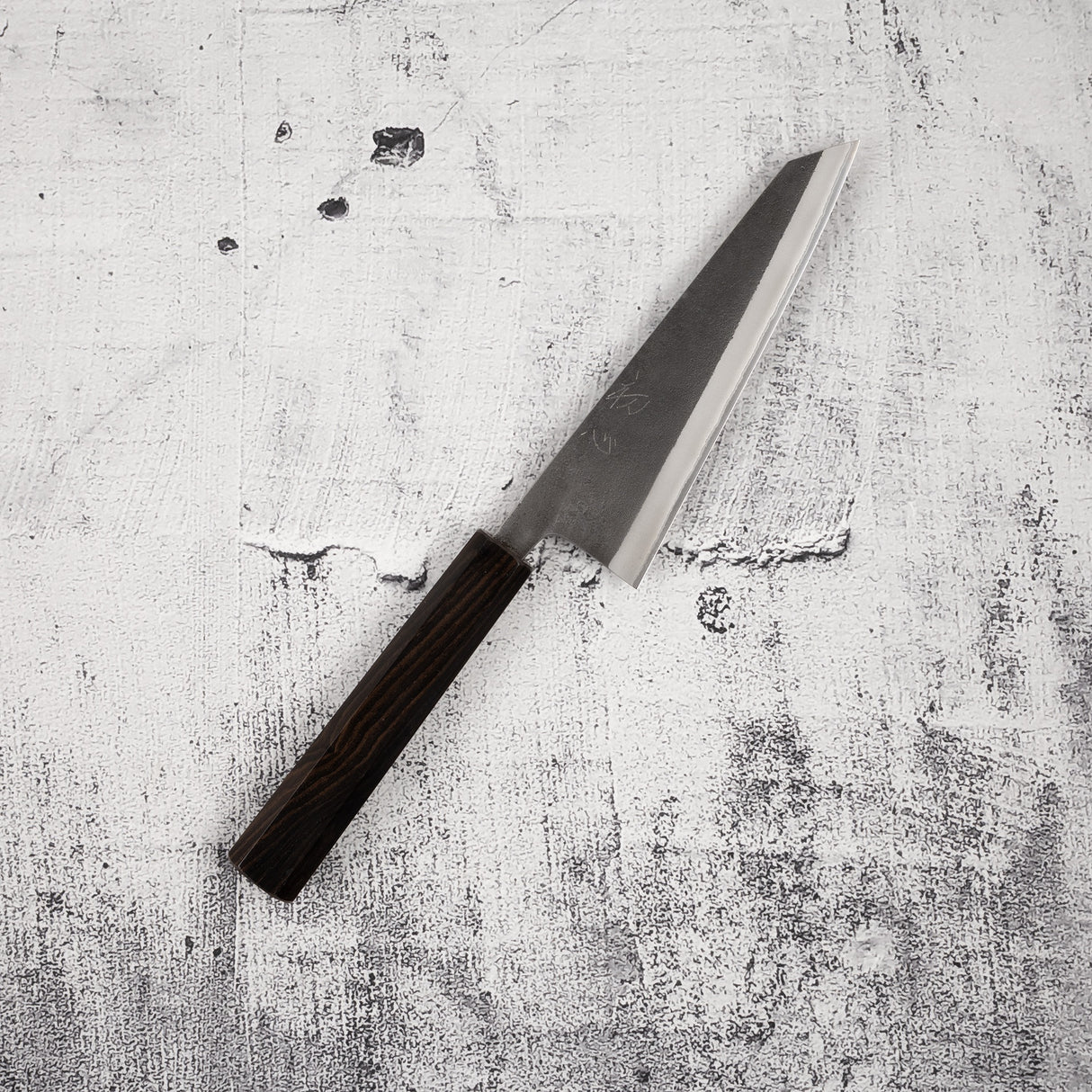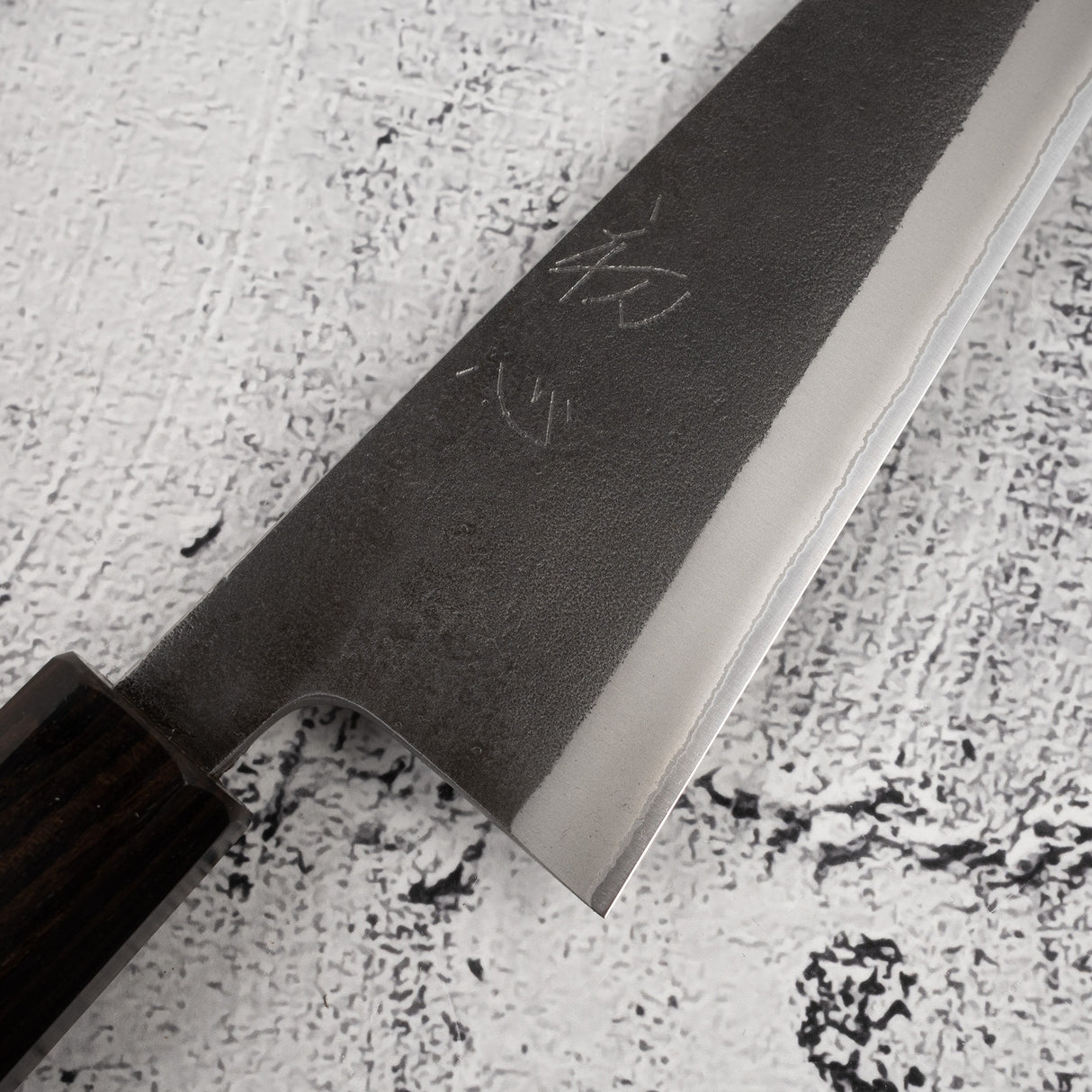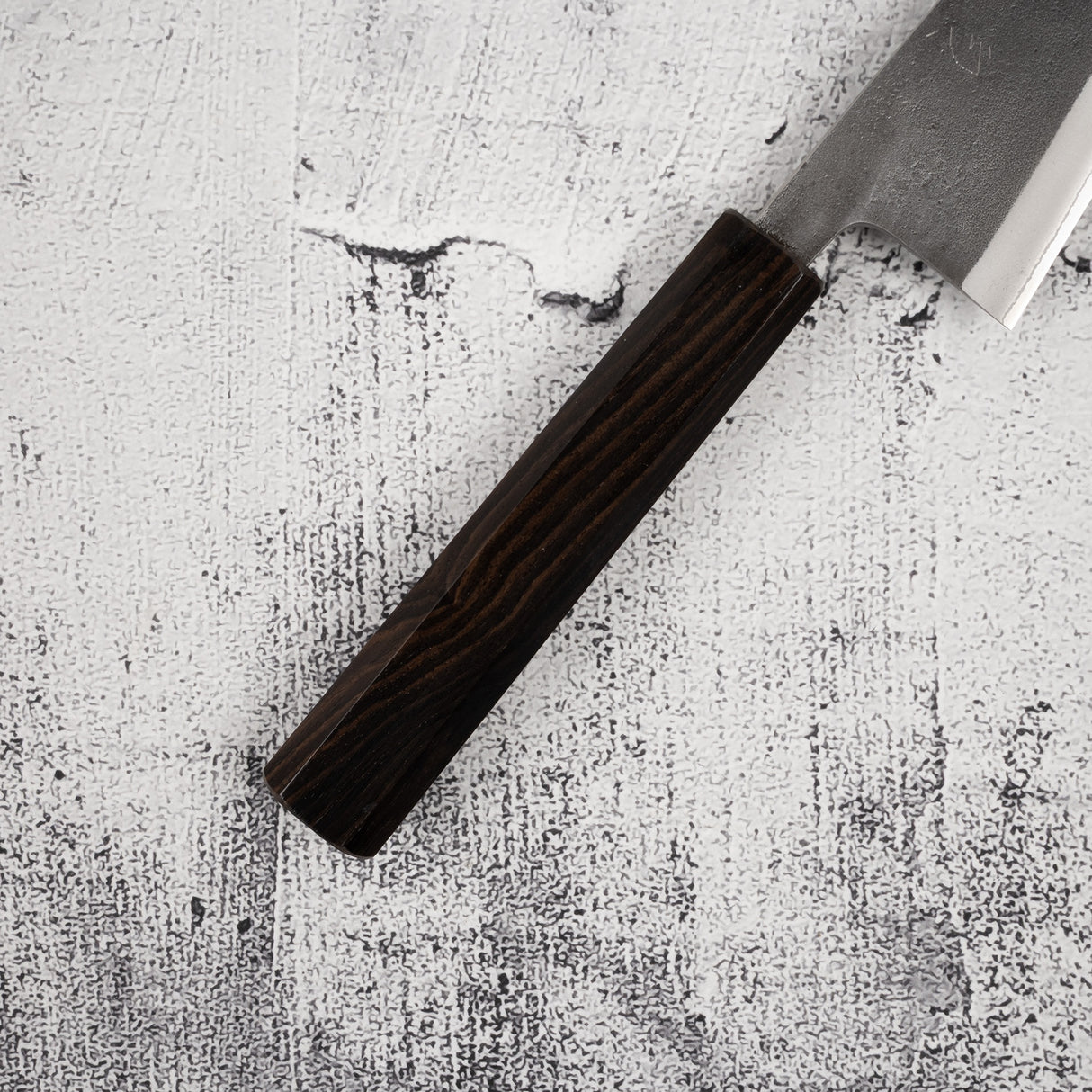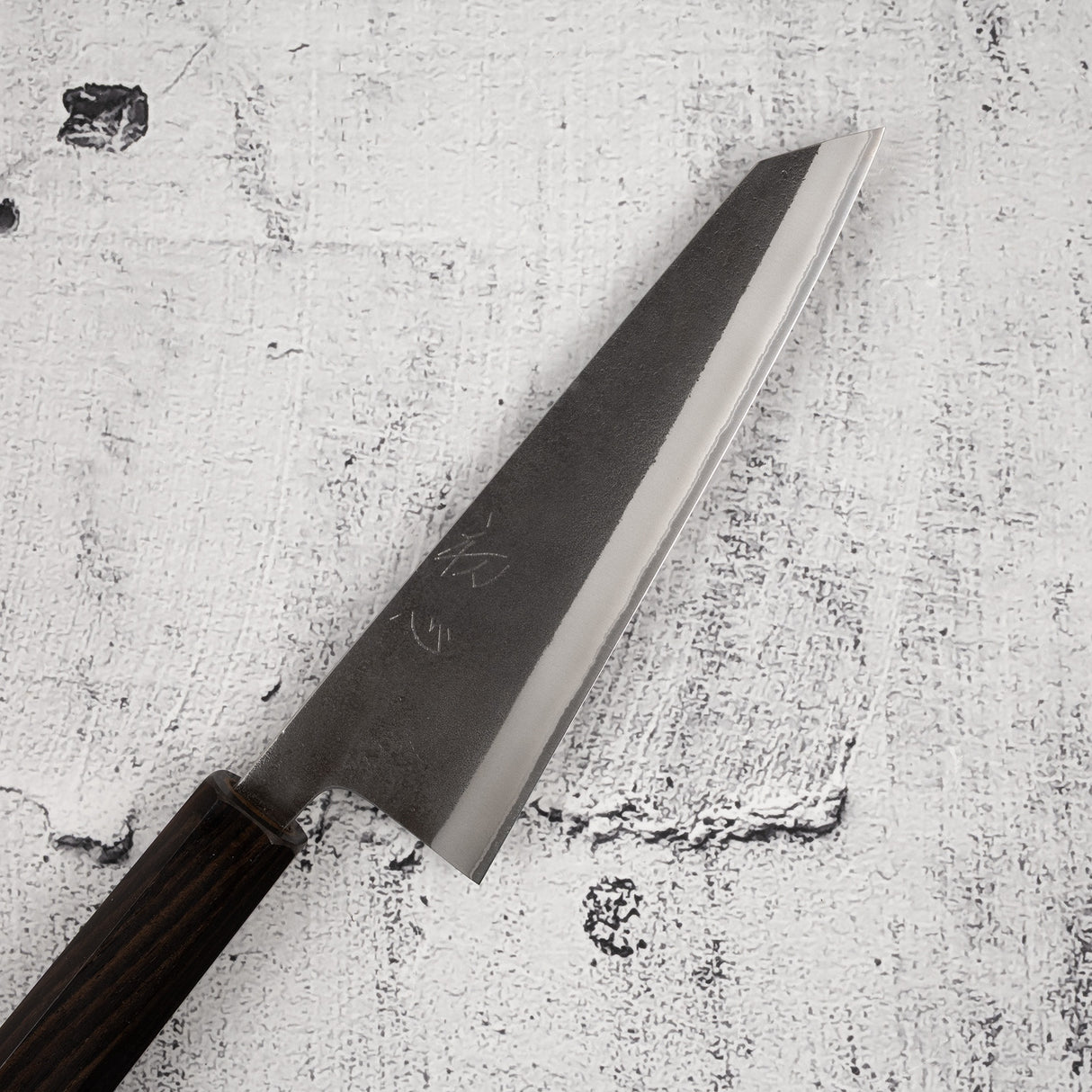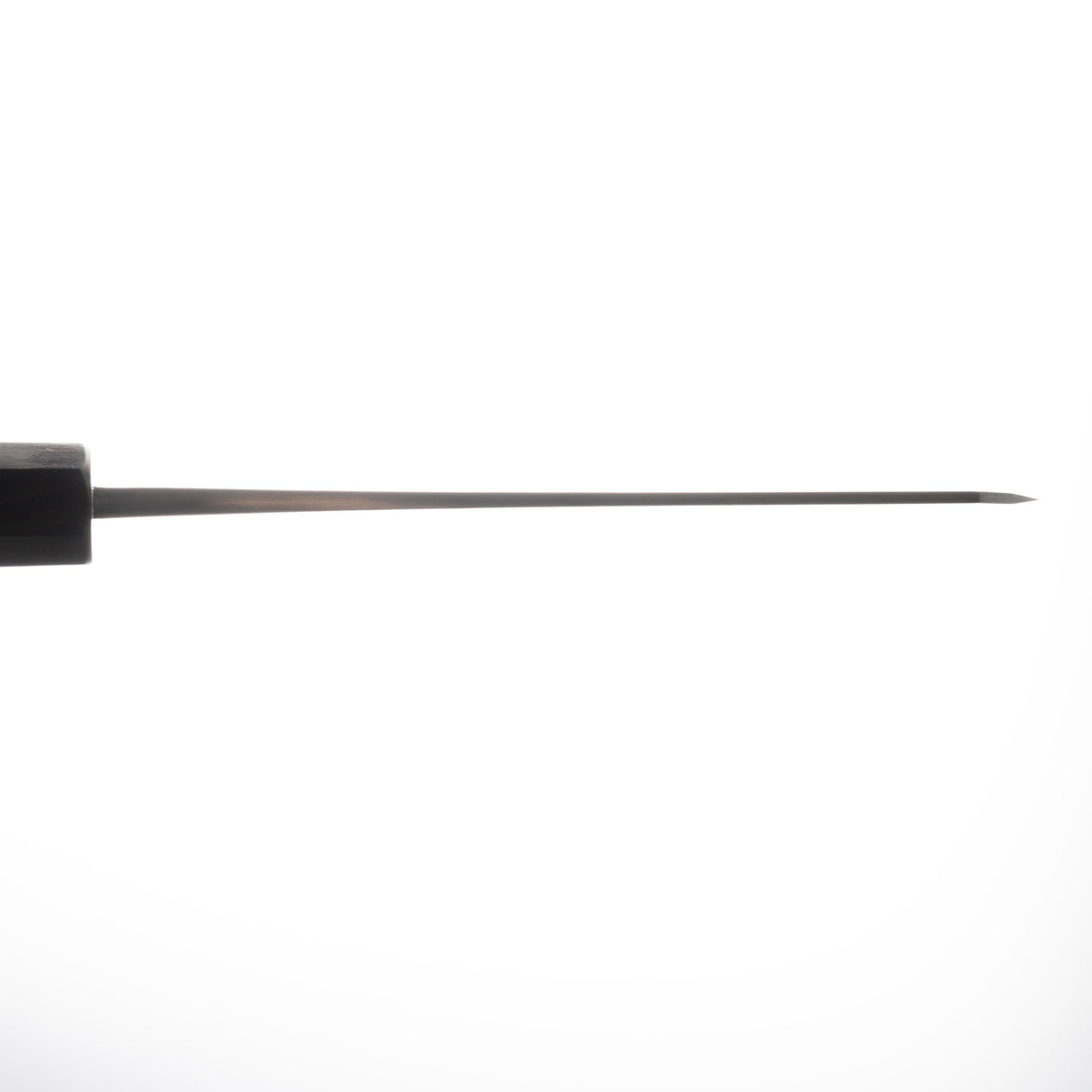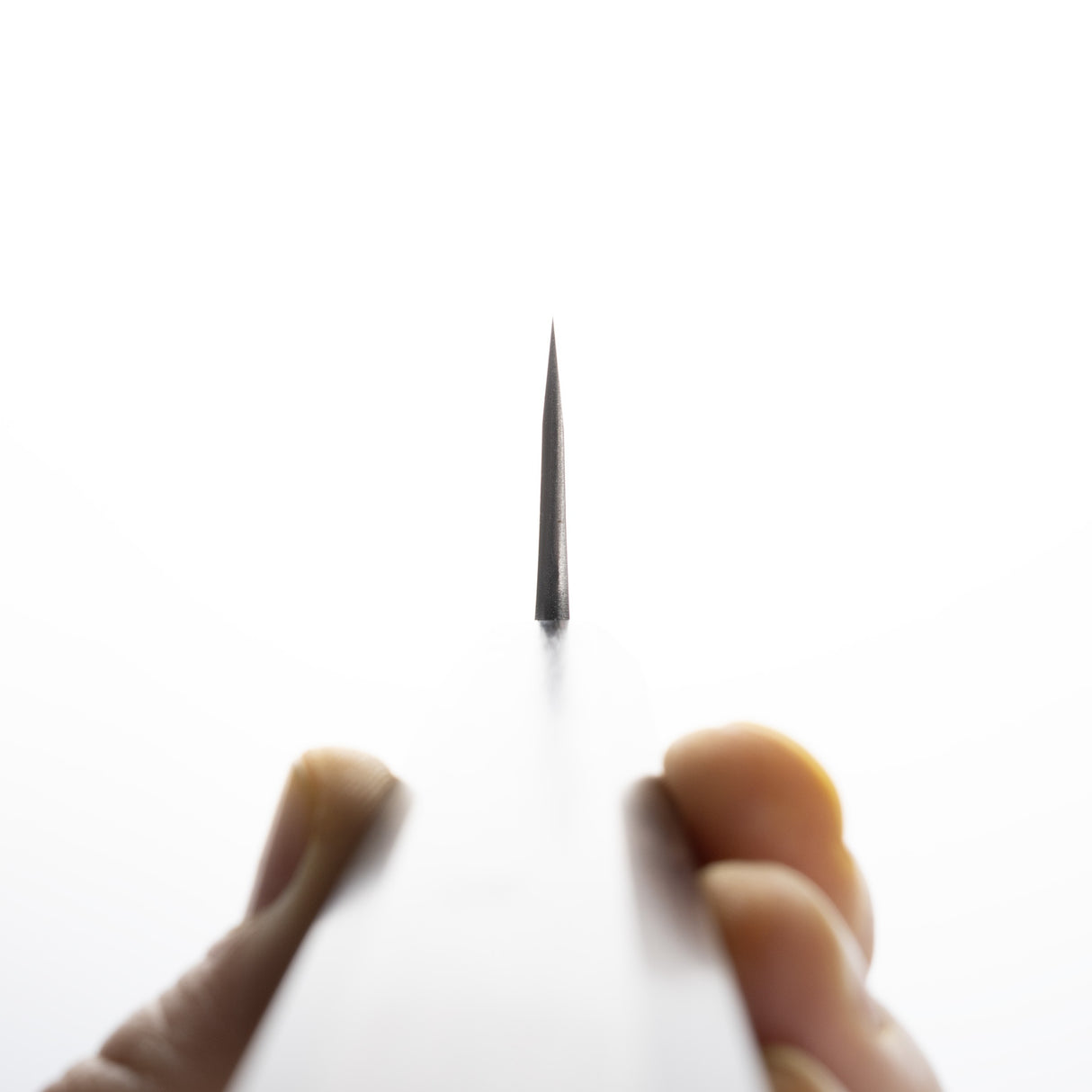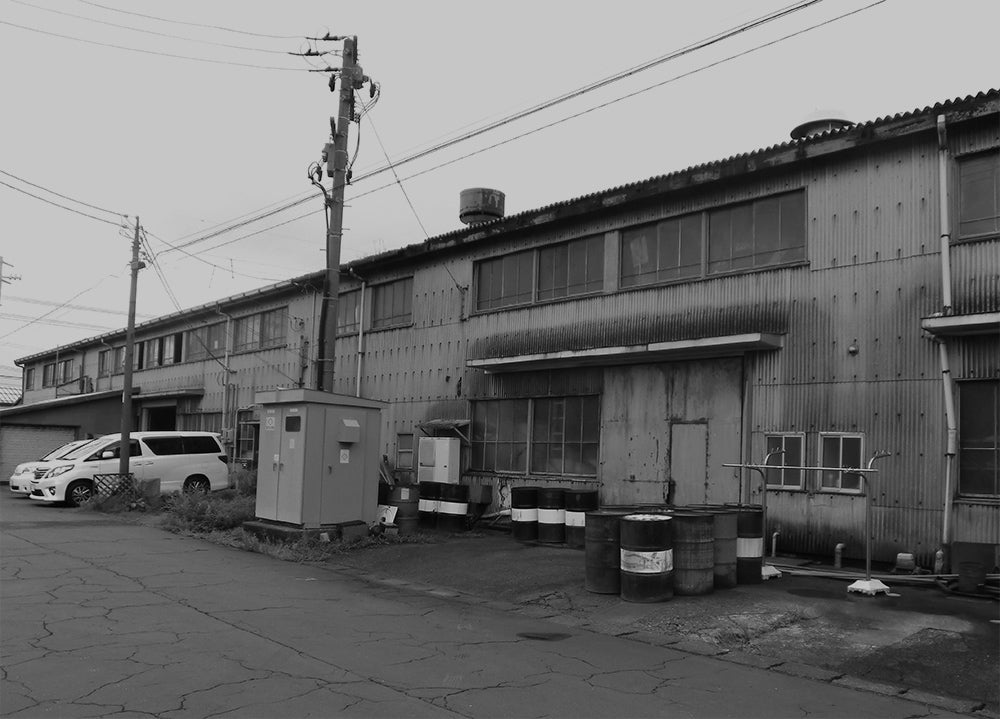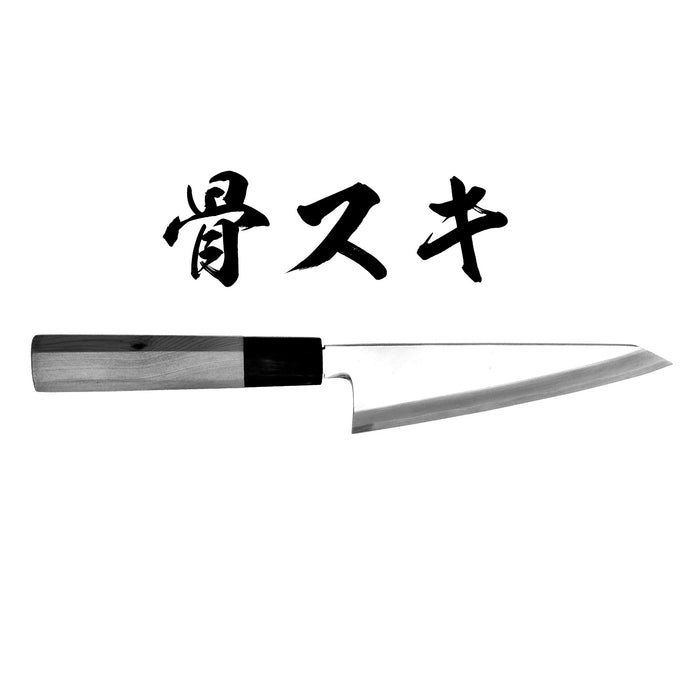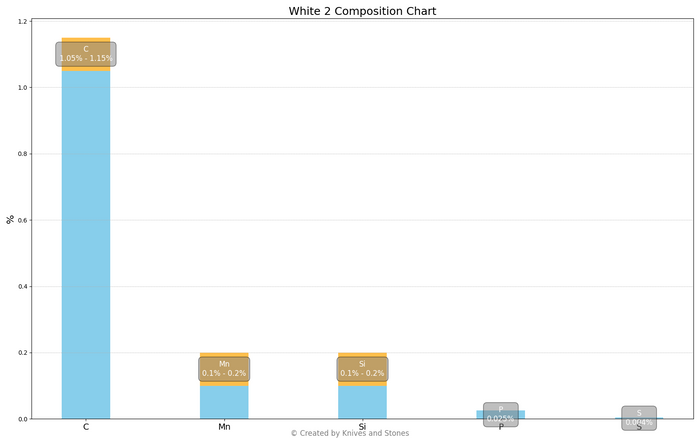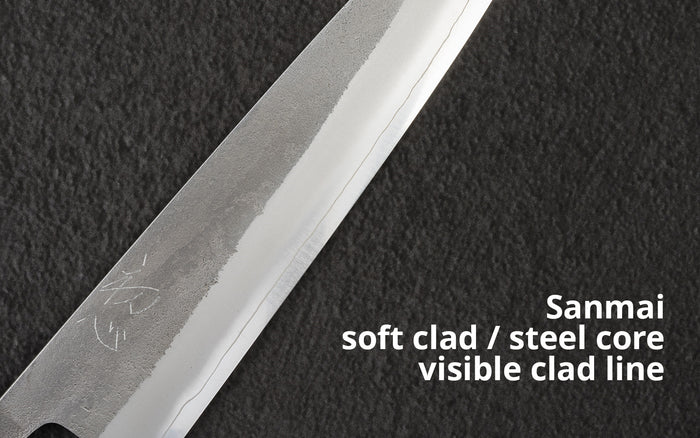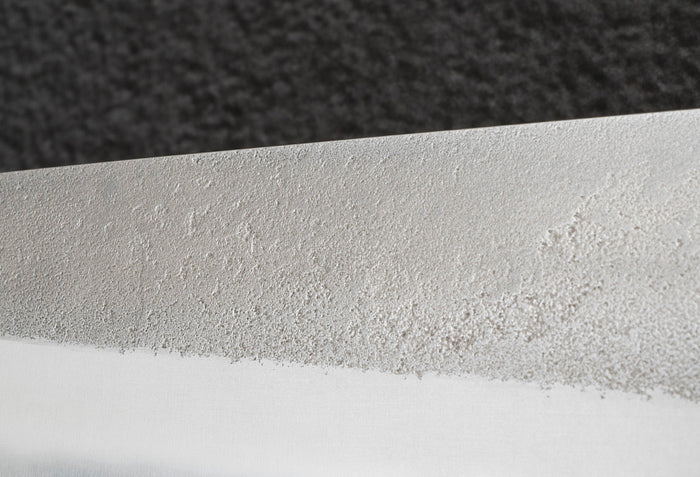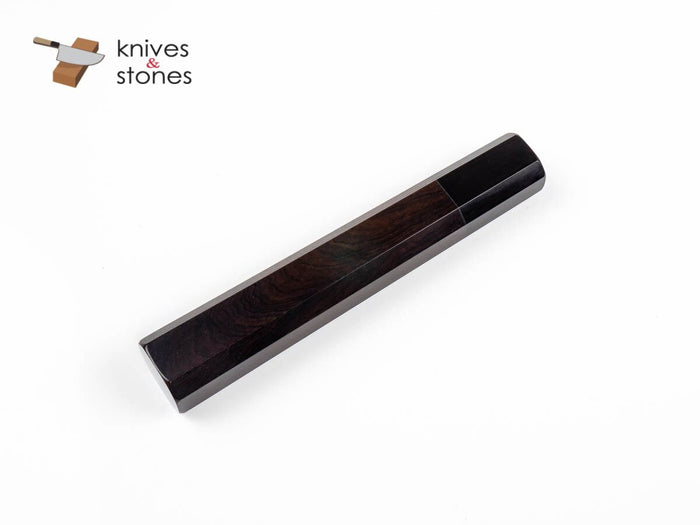Hatsukokoro | SKU:
HT-YOSHIKUW2-HS150-EB
Yoshikane White 2 KU Nashiji Honesuki 150mm Stainless Clad Ebony by Hatsukokoro
Regular price
$12,015.00
Unit price
/
Unavailable
Yoshikane White 2 KU Nashiji Honesuki 150mm Stainless Clad Ebony by Hatsukokoro is backordered and will ship as soon as it is back in stock.
IMPORTANT: Carbon steel knives can rust or patina quickly if not cared for properly. They require regular cleaning, drying, and oiling. If you are unfamiliar with carbon steel maintenance, we recommend choosing a stainless steel option instead.
Couldn't load pickup availability
Detailed Specifications
| Line | Hatsukokoro By Yoshikane KU White 2 Nashiji |
| Profile | Honesuki / Boning, Garasuki |
| Bevel Type | Double Bevel |
| Weight | 135 g | 4.8 oz |
| Edge Length | 157 mm | 6 3/16″ |
| Heel Height | 45 mm | 1 49/64″ |
| Width @ Spine | 4.0 mm | 5/32″ |
| Width @ Mid | 2.6 mm | 7/64″ |
| Width @ 1cm from Tip | 1.9 mm | 5/64″ |
| Steel | White 2 / Shirogami #2 | Carbon |
| Blade Construction | Sanmai - Stainless Clad |
| Hardness (HRC) | 60 - 64 |
| Surface Finish | Nashiji |
| Handle | Octagonal Ebony with Black Horn Ferrule |
| Region | Sanjo |
| Best for |
|

| Pros | Cons |
|
|
|
Care Instruction
- Don't cut hard things! Japanese knives are brittle so bone hacking is a NO NO!
- Wash with neutral detergent after use, and wipe dry;
- Please don't wash knife with dishwasher, it will damage the wood handle;
- Be careful not to leave the knife close to a heat source for a long time;
- It is a lot more dangerous to cut with a blunt knife than a sharp knife!
- It is best to sharpen a Japanese knife regularly on a waterstone.
- Oil the (carbon) knife if storing for an extended period of time to prevent rust.

